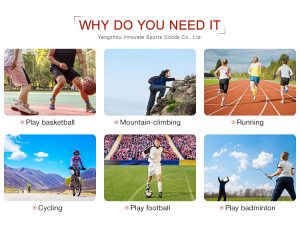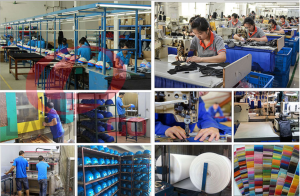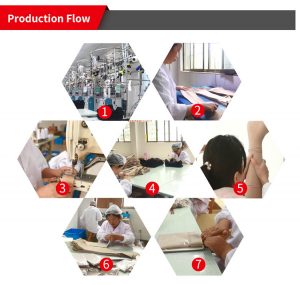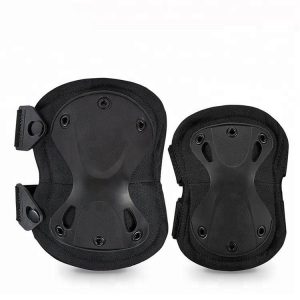
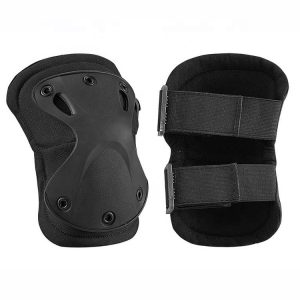
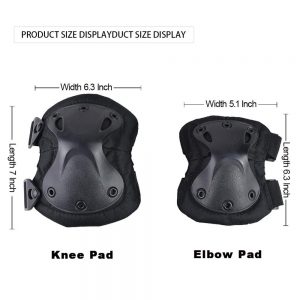
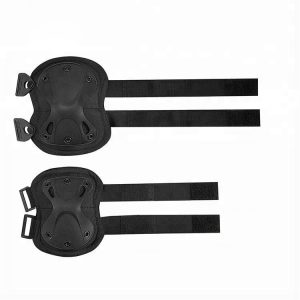
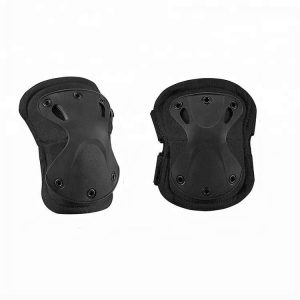
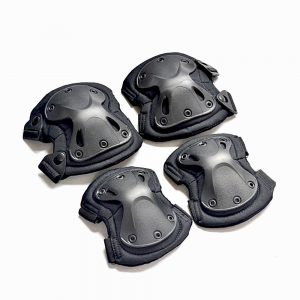
Product Description
| Protected part | Palms, elbows, knees |
| The main material | Polyester |
| For people | Universal |
| Applicable sports | Roller skating |
| Type | Hard shell, Tactical Knee Protector |
| Applicable scene | Sports trends, cycling sports, extreme challenges, playground |
| Color | Black |
| Specification | One Size Fits all |
| Order Lead time | 10~20 days |
| Custom | Accept custom logo and print, packaging |
| More Detail | Applicable People:Universal Type: Hard shell, Tactical Knee Protector Function:Protection Thickness:Thick Protection class:Basic Protection Color:Black Logo:Customized Logo Size:One Size Fits all Usage:Tactical Knee Pads Combat Elbow Pads Product name:Hard shell Tactical Knee Pads Combat Elbow Pads Packing: Polybag+headcard Cap material:TPR |
With the beginning of autumn, the weather will become more and more comfortable, and many children are more willing to play roller skating. But pay attention to safety issues. There are many injured children who play roller skating every year. Most of them do not develop safety awareness, do not wear protective gear, or wear protective gear incorrectly, which leads to injuries during sliding.
Common points of roller skating injuries
One is that most of the injured have been studying for a period of time. They think they will, and those who are bold enough to take off their protective gear, but beginners rarely break bones.
The second is that although the injured child wears protective gear, the irregular or poor quality of the protective gear does not provide the protection that it should be.
The injury was concentrated in two places: the radius near the wrist and the humerus near the elbow. Among them, radius fractures accounted for more than 70% of the total.
The importance of wearing roller skating protective gear
To learn roller skating, wearing protective gear is indispensable. Wrestling without wearing protective gear may cause physical contusion to varying degrees, causing children to have a shadow of this sport or even give up.
Roller skating itself is not dangerous. Failure to establish correct self-protection awareness and protective gear wearing habits is the cause of injury.
Wearing protective gear can effectively prevent children from being injured and reduce the impact by more than 80%. Allowing children to overcome the fear of learning roller skating helps to master new movements faster.
Classification of roller skating protective gear
The six-piece roller skating protective gear refers to: two knee pads, two elbow pads and two palm pads. Respectively protect the palms, elbows, and knees of the legs. These three parts are the parts that touch the ground and bear the pressure during wrestling, and are also the most vulnerable places.
A complete set of protective gear for roller skating should include: helmet, elbow pads, knee pads and palm pads.
How to wear protective gear properly
There is no absolute order for wearing roller skates and protective gear, but the palm protector must be worn last
- Wearing elbow pads
The first is to untie the straps, pass the arm through the elastic cloth sleeve, adjust the protective gear to the position of the elbow pad, and then fix it with the strap. This way of fixing is firmer and less likely to fall off. It is recommended to use this way of wearing.
The second is to untie the straps, place the protective gear on the elbow pads, and fix them directly with the straps. This way is more convenient to wear, but not as firm as the first. In addition, the straps will have direct contact with the body, so they are not suitable for short sleeves in summer.
The hardest part of the elbow pad should correspond to the elbow joint.
- Wearing knee pads
There are also two ways to wear knee pads, which are the same as elbow pads. Similarly, the hardest part of the shell of the kneepad should correspond to the joints of the legs and knees.
- Wearing a palm protector
Generally, elbow pads and knee pads do not distinguish between left and right, but palm pads are divided into left and right hands and front and back.
The palm protector mainly protects the palm, so the strong side of the palm protector protects the palm.
Before putting on, distinguish the left and right hands from the front and back. When putting on, pass the thumb through the thumb hole of the elbow so that all the fingers are exposed, and then stick the Velcro.
- Wear a helmet
When wearing a helmet, first straighten your hair for comfort.
Adjust the strap of the helmet to an appropriate length, and then tie the strap to your face.
When wearing a helmet, press the helmet over the eyebrows, and cover the forehead and back of the head. Adjust the helmet adjuster so that the helmet fits the head better.
